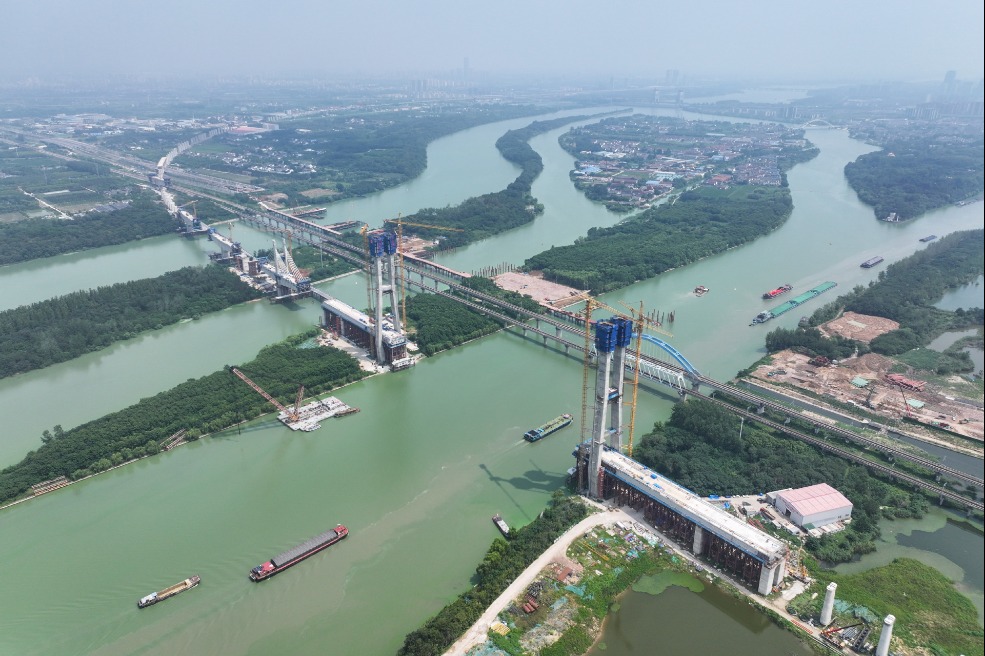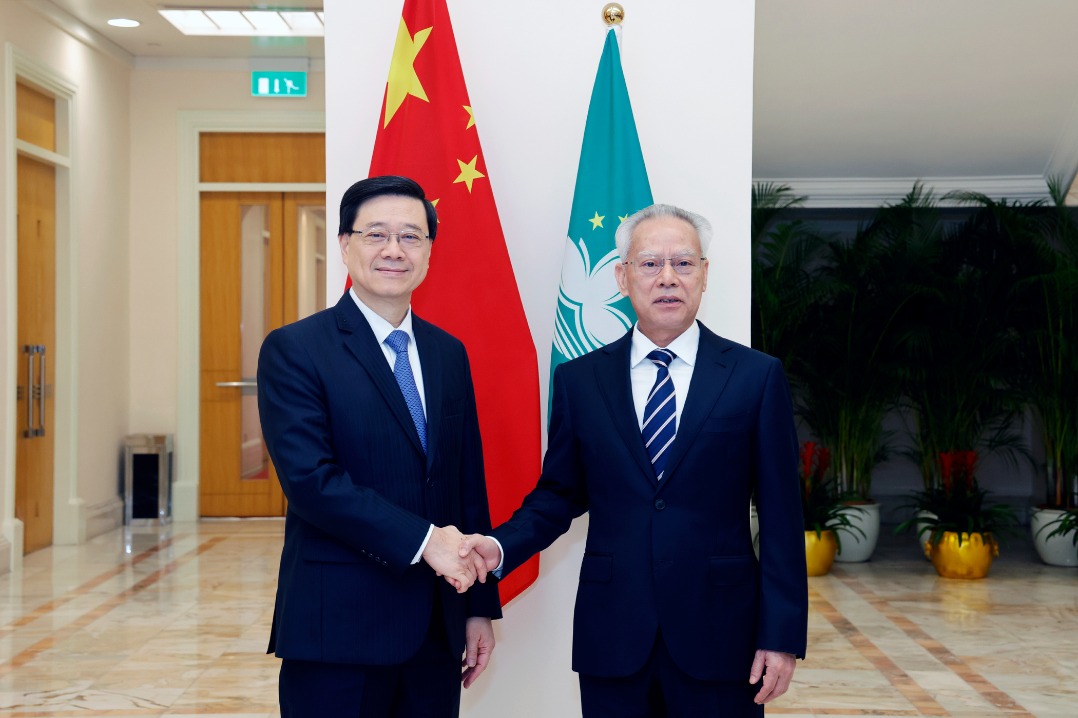AI-powered hospitals to offer faster, expanded care

A Tsinghua University research team is preparing to roll out a virtual hospital powered by artificial intelligence that could dramatically accelerate medical training and broaden healthcare access, particularly in remote regions and conflict zones.
The AI platform, developed by the Institute for AI Industry Research at Tsinghua, simulates a full hospital environment across 21 clinical departments and is currently undergoing final testing. It is expected to launch to the public later this year.
Early trials conducted by Tairex, a startup incubated by the Tsinghua institute, suggest the platform's AI doctors can diagnose patients more efficiently than human physicians — a development that could help alleviate pressure on China's overburdened healthcare system.
At the core of the system is a time-compression engine that simulates every stage of patient care — from symptom onset to diagnosis, treatment and recovery — at a speed far exceeding real-time. The platform is designed not to replace doctors, but to assist them, especially by reducing their administrative workload.
"We are building AI assistants to reduce doctors' administrative burden," said Liu Yang, executive dean of the research institute. "We want our product to help every patient — especially in remote areas — to have instant access to quality care through their smartphones."
Departments in the virtual hospital were selected based on international medical competency standards, and developers plan to expand the platform to include traditional Chinese medicine.
The initiative has already drawn global interest. Najum Iqbal, communications lead for the Regional Delegation for East Asia of the International Committee of the Red Cross, said AI-powered triage systems could be lifesaving in conflict zones where hospitals may be unsafe or inaccessible.
"An AI hospital is an innovative idea, and it will be interesting to follow how it improves the overall experience of Chinese people in accessing healthcare," Iqbal said. "I hope a successful rollout will help us in the future to use AI in countries affected by armed conflict, where dangers are posed for both patients and medical staff."
Fa Cuiwen, a medical sociologist at Tsinghua, noted that long wait times and complex bureaucracy often discourage Chinese patients from seeking timely care. AI triage systems could handle routine cases remotely, she said, freeing hospital resources for more urgent needs.
"AI hospitals will be able to assist patients in resource-limited regions by rapidly pinpointing symptoms and accelerating accurate diagnoses," Fa said. "They will save precious time for treatment while reducing financial burdens."
For patients like Kausel Dilmurat, who lives in the Xinjiang Uygur autonomous region and has a chronic illness, AI platforms could fill a critical gap.
"Accessing medical care can be challenging sometimes, and inconsistent recommendations from different hospitals can be frustrating," he said. "If AI-powered healthcare platforms can provide professional guidance, they would offer patients a valuable additional resource for informed decision-making."
Zhang Li, chief representative of the branch in China for the Asia Pacific Medical Technology Association, said the success of medical AI depends on addressing real-world clinical needs and bridging the gap between research and practice.
"China's role as an innovation hub now depends on balancing technological ambition with tangible healthcare outcomes," Zhang said. "The nation's vast public hospital system, which generates rich clinical data, could help transform AI-plus-healthcare systems globally."
Still, Zhang emphasized that medical AI is a nascent field requiring careful evaluation. "Multifaceted considerations and testing are essential."
According to Liu, the Tsinghua research team has already received international cooperation requests from the Middle East, Southeast Asia and Western countries. These partnerships would focus on developing diagnostic modules for specific diseases.
However, Liu said all international collaborations will comply strictly with China's data sovereignty laws.
"Patient data used for AI model training remains anonymized and stored domestically," he said, adding that the team has established cybersecurity and medical ethics review protocols.
The AI diagnostic tools will first be introduced in urban hospitals this year, while rural clinics will gain access via telemedicine services. With China's 5G infrastructure expanding, Liu envisions a future in which "basic healthcare is as accessible as checking the weather forecast."
Liu stressed that AI agents are not designed to replace doctors.
"Our work sets a new benchmark not just for the West, but also for the Global South," he said. "By showing how AI can amplify limited medical resources, we hope to contribute to equitable healthcare innovation worldwide."
- 5 dead, 24 injured in suspension bridge accident in Xinjiang
- Mainland warns Lai over pro-independence remarks
- Shanghai Book Fair unveils new initiatives ahead of official opening
- China allocates 100m yuan for post-disaster recovery in flood-hit Guangdong
- Notice calling for a halt to minors participating in food delivery services sparks debate
- 1st anniversary of Badain Jaran World Heritage status celebrated





































